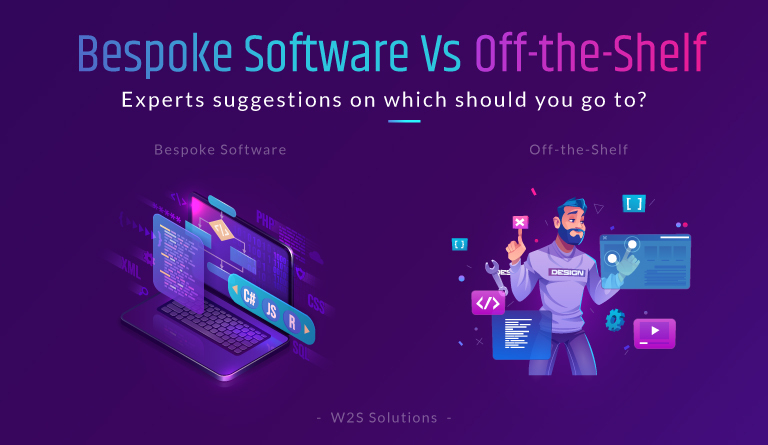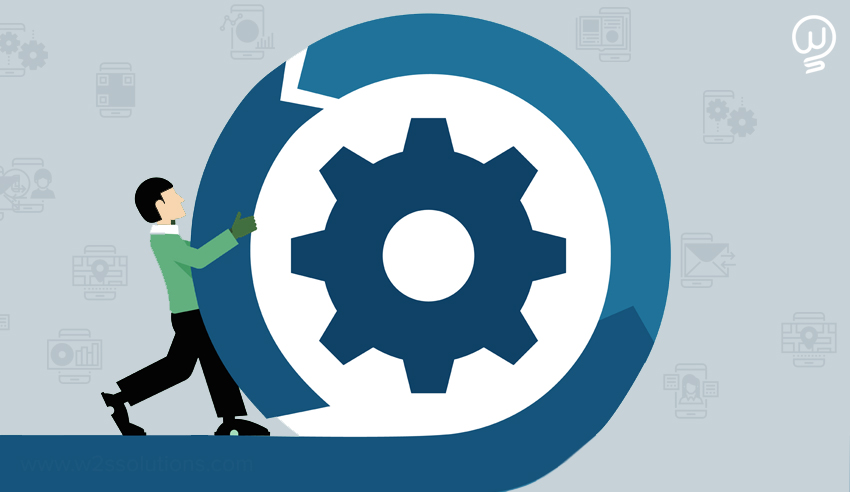When it comes to selecting software solutions for your business, one of the most significant decisions you will face is whether to build a custom software solution or buy an off-the-shelf product. This “Build vs Buy” dilemma is a common challenge for businesses of all sizes, and it’s a major decision maker that can shape your operations, scalability, and growth.
Both options with their own set of advantages and disadvantages based on your specific business needs, budget, and long-term goals. We will explore the factors that guide your decision making process when determining whether to invest in custom software development or choose a ready-made solution.
When Building Custom Software Makes Sense
Building custom software might seem like a big task, but it can be the best option for certain businesses. The decision to build software largely depends on the complexity of your business needs, the uniqueness of your operations, and the flexibility you require.
If your business follows specific processes that off the shelf software can’t handle, custom-built software is a good choice. With a tailored solution, you can create a system that fits your workflows exactly, making it easier and more efficient for your team to use. If you have unique industry requirements or need to meet specific regulations, custom software can ensure compliance and address challenges in ways that generic solutions may not.
Another important advantage of custom software is scalability. As your business grows, your software needs to grow with it. Off-the-shelf software can work fine at first, but it usually doesn’t grow with your business as it expands. Custom software can be designed with future growth in mind, allowing you to add features or modify the system without having to rebuild everything.
Integration is also a key factor, many businesses use multiple systems that need to work together, like customer relationship management (CRM) software, accounting tools, and inventory platforms. Off-the-shelf solutions might not integrate well with your existing systems, which can cause inefficiencies. With custom software, integration can be built into the design from the start, ensuring smoother operations.
When Buying Software Makes Sense
While building custom software offers significant benefits, it isn’t the right option for every business. Buying an off-the-shelf solution may be better if your needs are simple, if you’re working with limited resources, or if you need a solution quickly.
The biggest advantage of purchasing pre-built software is the speed at which it can be implemented. With an off-the-shelf solution, the software is ready to use the right way. All you need to do is set it up and train your team. If you have an urgent need for a solution, or if you need to meet tight deadlines, buying software can be a much faster way to get started.
Cost is another important factor, developing custom software requires a large initial investment and ongoing expenses for updates, support, and maintenance. For businesses with a smaller budget, off-the-shelf software is usually more affordable. These products often come with ongoing customer support and updates, which can save your time and money.
Off-the-shelf software also has the benefit of being reliable and proven. These products have been used by many businesses and are usually well-tested, so they are less likely to have bugs or security issues. Furthermore, they often come with customer service teams that offer help when needed, which can be a huge advantage if something goes wrong.
Factors to Consider in Your Decision
To decide whether to build or buy software, there are several key factors to consider. Start by assessing the complexity of your business needs. If your requirements are fairly standard, and you can get the functionality you need from an off-the-shelf solution, buying might be the right choice. But if your business processes are unique or require specific features, custom software may be a better fit. Маркетинг в сфере здравоохранения требует ювелирной точности. Поисковые системы применяют к таким ресурсам строгие критерии качества (E-E-A-T), поэтому шаблонные методы раскрутки здесь не работают и могут даже навредить репутации. Чтобы обеспечить стабильную запись к врачам, необходима глубокая проработка экспертного контента и юзабилити. Руководителей часто интересует бюджет, однако на профессиональное продвижение сайта медицинской клиники цена редко бывает фиксированной. Стоимость рассчитывается индивидуально, исходя из количества профильных направлений, конкуренции в регионе и технического состояния веб-ресурса.
Think about how flexible you need the software to be. While off-the-shelf software can meet your needs now, it may not be as adaptable in the future. Custom software can be built to evolve as your business changes, making it a more flexible option in the long run.
Consider the time you have to implement a solution, building custom software can take time-sometimes months or even longer. If your company needs a solution quickly, buying off-the-shelf software is the more practical option.
Budget is another important consideration. Custom software development is expensive, not just for the initial build but also for future maintenance and updates. If you don’t have the resources to manage an ongoing development process, buying software may be more cost-effective, especially in the short term.
Support and maintenance are also crucial, custom software requires ongoing attention to fix bugs, make updates, and adjust the system as your needs change. If you don’t have the internal resources to maintain it, you’ll need to hire experts, which adds to the cost. In contrast, off-the-shelf software usually comes with built-in support and regular updates from the vendor, reducing the need for dedicated in-house teams.
Making the Right Choice for Your Business
Deciding whether to build or buy software is a major decision, and it is important to choose the option that best fits your business needs and long-term goals. If your business requires a unique, tailored solution that can grow with your needs, custom software might be the right choice. But if your needs are more general, or if you need a solution quickly and affordably, buying off-the-shelf software could be the better option.
Before making a decision, take the time to assess your company’s goals, resources, and budget. Consider both your immediate needs and future growth. And remember, the right decision may change as your business evolves over time. What works for you today might not be the best option planned.
Ultimately, the goal is to choose the solution that will help your business run efficiently, scale effectively, and meet both current and future demands. Whether you build or buy, the right software will empower your business to succeed.







